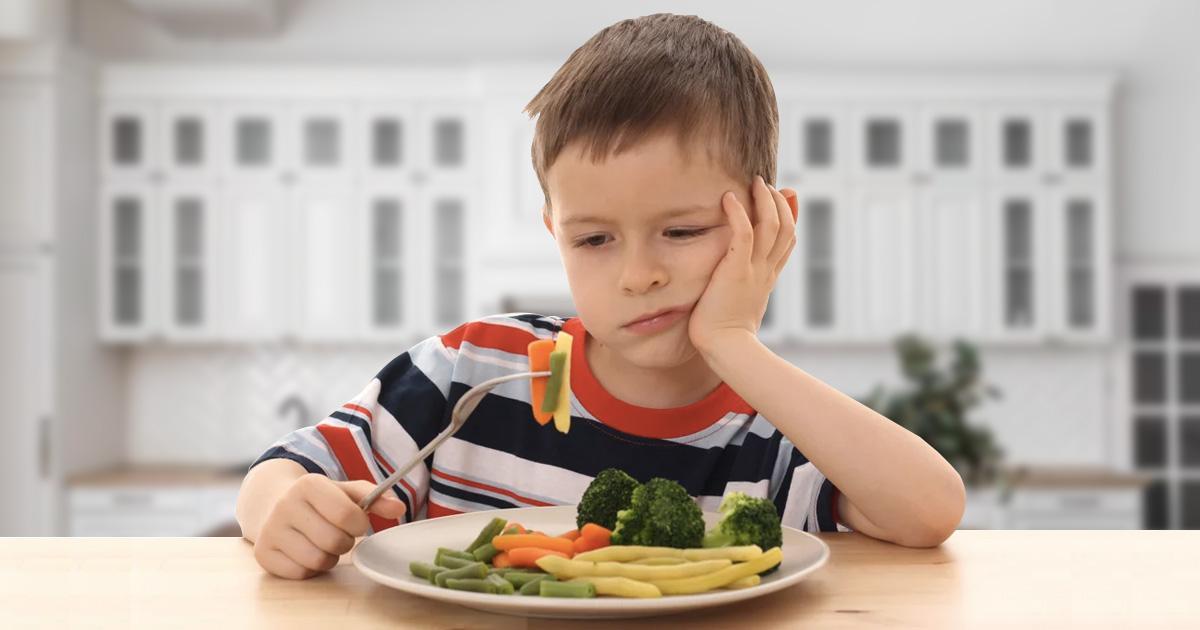Understanding Why Do Kids Hate Vegetables: Unraveling the Mystery

Nutritious food plays a crucial role in the healthy development of children. Among the various types of wholesome foods, vegetables hold a special place due to their abundant vitamins, minerals, and fiber content. However, for many parents, getting their children to eat vegetables can be an arduous task. It seems that a mysterious aversion to these essential food items has plagued kids for generations.
But why exactly do children harbor such a strong dislike for vegetables? Exploring the reasons behind this aversion can help parents better understand their children’s preferences and find effective strategies to encourage a more positive relationship with vegetables.
Why Do Kids Hate Vegetables?
Taste and Texture: One of the primary reasons why children may resist eating vegetables is their distinct taste and texture. Vegetables often possess natural flavors that are more subtle or even bitter compared to the sweetness of other foods kids tend to prefer. Additionally, the texture of vegetables, such as their crunchiness or fibrous nature, may be off-putting to young palates, leading to immediate rejection.
Evolutionary Factors: Evolutionary biology also offers some insights into why children may show resistance to vegetables. Throughout human history, the bitter taste of certain plants signaled potential toxicity, causing an innate aversion. This instinctive preference for sweet and fatty foods, which were historically associated with energy-rich and safe sources, can still persist in modern children.
Limited Exposure: Another significant factor contributing to children’s dislike of vegetables is limited exposure. Kids tend to favor familiar foods, and if they have not been introduced to a wide variety of vegetables from an early age, they may develop a narrow taste preference. Lack of exposure can make vegetables seem foreign and unappealing, leading to resistance when presented with unfamiliar options.
Role Modeling: Children are highly influenced by their surroundings, particularly their parents and caregivers. If they observe their role models displaying a dislike for vegetables or not consuming them regularly, it can shape their own attitudes and behaviors. If vegetables are not a prominent part of the family’s diet or are perceived negatively by parents, children are more likely to mirror these attitudes.
Sensory Sensitivities: Some children have heightened sensory sensitivities, which can make certain aspects of vegetables, such as their smell, taste, or texture, overwhelming and unpleasant. These sensitivities can amplify the aversion towards vegetables and make it challenging for children to overcome their dislike.
Other Reasons: Bitter Foods, Aging, and Taste Buds
In addition to the reasons discussed earlier, there are two more factors that contribute to kids’ dislike of vegetables: the way their brains are wired and the changes that happen to their taste buds as they grow older.
Our brains have evolved to naturally avoid bitter flavors because they often indicate the presence of toxic or poisonous substances. Unfortunately, many vegetables contain compounds that fall into the category of bitter foods, such as phenols and flavonoids. As a result, children tend to prefer foods that are saltier or sweeter in taste.
However, as kids continue to eat vegetables over time, their taste buds adapt and develop a higher tolerance for bitterness. This is why many adults start enjoying the taste of vegetables that they may have avoided during their younger years.
Initially, humans are born with around 10,000 taste buds, but this number gradually decreases from ages 40 to 50. With fewer taste buds, it becomes more challenging to distinguish between different tastes, including sweet, salty, and bitter. Additionally, as people age, their perception of flavors can change. While some individuals may have enjoyed sugary foods in their youth, they may find that these same treats no longer taste as appealing.
This is because children are naturally inclined to prefer calorie-dense foods, like those rich in sugar. However, as people age, the taste of sugar and candy can become overwhelming, leading to a decreased preference for overly sweet foods.
Understanding these factors can help parents navigate their children’s reluctance to eat vegetables. By gradually exposing children to different vegetables and offering positive experiences to them, parents can help their kids develop a taste for these nutritious foods.
Additionally, as children grow older, their taste buds change, which may make them more open to trying and enjoying vegetables. So, while it may be a challenge in the beginning, with patience and persistence, parents can encourage their kids to embrace a healthier and more varied diet that includes plenty of vegetables.
Transforming Vegetables for People Who Hate Vegetables
In conclusion, when it comes to children who are picky eaters and struggle with vegetables, it takes patience, creativity, and consistency to help them develop a taste for these important foods. Leading by example, making veggies visually appealing and fun, incorporating them into familiar dishes, gradually introducing different varieties, and involving kids in the selection and preparation process can all increase their willingness to try and enjoy nutritious vegetables.
Providing dips and sauces, engaging in vegetable gardening, and celebrating their achievements along the way are also effective strategies for encouraging positive eating habits and a love for veggies. Additionally, considering the use of vitamins specifically designed for picky eaters can help ensure they receive essential nutrients.
Remember, every small step counts, and with perseverance, you can help your kids overcome their aversion and embrace the wonderful world of vegetables. By instilling healthy eating habits from a young age, you are setting the stage for a lifetime of well-being and nourishment for your children.
